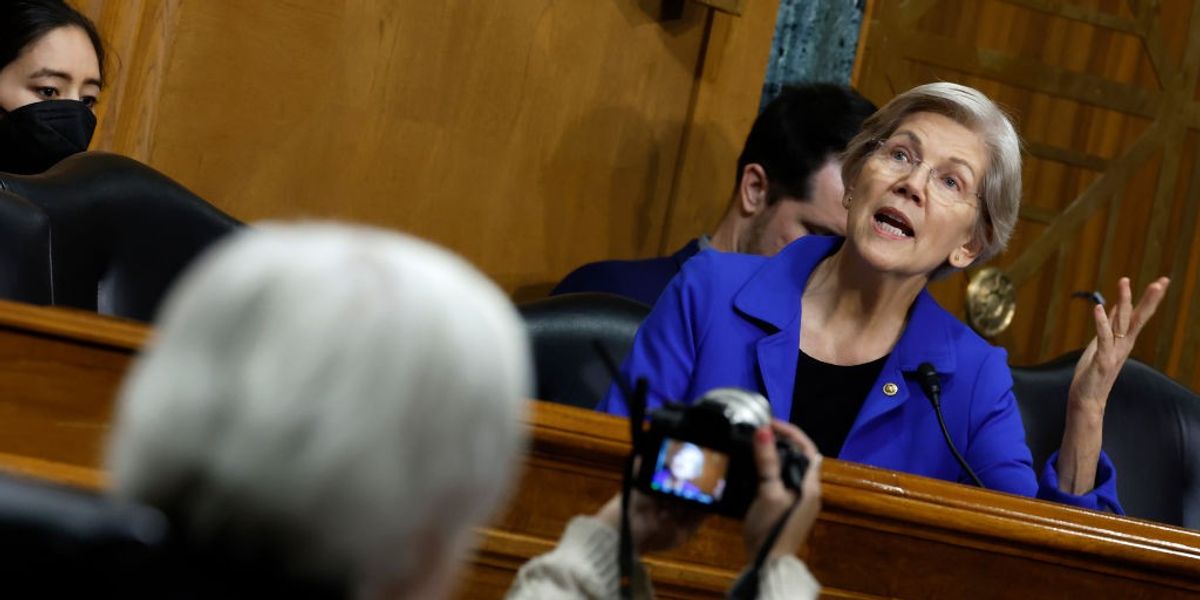
I hadn't intended to spend so much time this week on the banking crisis. I'm old enough to remember a time when banking was boring. But since the 1980s, banking has become hugely profitable for bankers and wildly dangerous for the rest of the economy. This week shows why.
At this moment, the Federal Reserve Bank is sitting on the horns of a dilemma.
On one horn are legitimate fears that smaller banks won't have enough capital to meet their depositors' needs if the Fed continues to raise interest rates when it meets next week.
Raising rates will slow the economy and possibly imperil banks—especially those that used depositors' money to purchase long-term bonds when interest rates were lower, as did Silicon Valley Bank.
In other words, raising interest rates next week could cause an even bigger run on the banks.
Besides, inflation is receding, albeit slowly. So why take the risk?
But on the other horn are the Fed's legitimate fears about inflation becoming entrenched in the economy, requiring more interest rate hikes.
But the two objectives—avoiding a bank run and raising rates—are in conflict. As the song goes, Something's got to give. What will it be?
On top of this, 11 of America's biggest banks yesterday agreed to contribute a total of $30 billion to prop up First Republic Bank, another smaller bank caught in the turmoil. This "show of support" (as it was billed, without irony) elicited a cheer from the Fed's Jerome Powell and Treasury Secretary Janet Yellen, who called it "most welcome." (Of course it was welcome. They probably organized it.)
But consumers and depositors are still worried.
Meanwhile, on the other side of the Atlantic, the European Central Bank has raised interest rates by half a percentage point, saying it's as committed as ever to fighting inflation.
Yet rising interest rates are shaking banks in Europe as well. Just hours before the European Central Bank's announcement, the banking giant Credit Suisse got a $54 billion lifeline from Switzerland's central bank.
The financial system is facing a crisis of confidence. Finance ultimately depends on confidence—confidence that prices are under control, and confidence that banks are sound.
But ever since the near meltdown of Wall Street in 2008, followed by the milquetoast Dodd-Frank regulation of 2010 and the awful 2018 law exempting smaller banks, confidence in America's banks has been shaky.
November's revelation that the bitcoin giant FTX was nothing but a Ponzi scheme has contributed to the fears. Where were the regulators? Last Friday's revelation that Silicon Valley Bank didn't have enough capital to pay its depositors has added to the anxieties. Where were the regulators?
Credit Suisse has been battered by years of mistakes and controversies. It is now on its third CEO in three years. Why? Swiss banking regulations are notoriously lax, but American bankers have also pushed Europeans to relax their financial regulations, setting off a race to the bottom where the only winners are the bankers. As Lloyd Blankfein, then CEO of Goldman Sachs, warned Europeans, "operations can be moved globally and capital can be accessed globally."
One advantage of being a bank (whether headquartered in Silicon Valley or Switzerland) is you get bailed out when you make dumb bets. Another is you can choose where around the world to make dumb bets. Which is why central banks and bank regulators around the world must coordinate with each other to ensure that instead of a race to the bottom, it's a race to protect the public.
**
Banking is a confidence game. If the public loses confidence in banks, the financial system can't function.
In the Panic of 1907, when major New York banks were heading toward bankruptcy, Secretary of the Treasury George B. Cortelyou deposited $35 million of federal money in the banks. It was one of the earliest bank bailouts, designed to restore confidence.
But it wasn't enough. J.P. Morgan (the man who founded the bank) organized the nation's leading financiers to devise a private bailout of the banks, analogous to yesterday's. They redirected money between banks, secured further international lines of credit, and bought up the plummeting stocks of healthy corporations.
Confidence was restored, but the underlying weaknesses of the financial system remained. Those weaknesses became painfully and irrevocably apparent in the Great Crash of 1929.
This content originally appeared on Common Dreams and was authored by Robert Reich.
Robert Reich | Radio Free (2023-03-17T14:19:30+00:00) Losing Global Capitalism’s Confidence Game. Retrieved from https://www.radiofree.org/2023/03/17/losing-global-capitalisms-confidence-game/
Please log in to upload a file.
There are no updates yet.
Click the Upload button above to add an update.